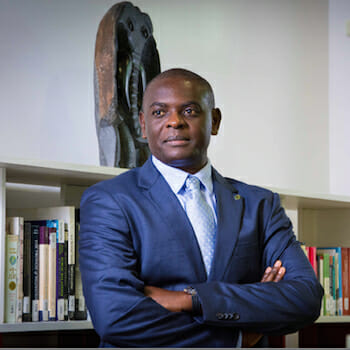
Time to Re-Imagine the Role of Civil Society in Africa
Africa’s civil societies face a crisis of legitimacy. They are perceived as “unelected, unaccountable institutions that answer to elsewhere.” In an editorial published November 26, 2013, the Daily Nation observed that “if some NGOs behave as if they are acting at the behest of foreigners, then they cannot expect easy accommodation by governments.”
However, the emergence of fundamental freedoms, especially the expansion of democratic space in postcolonial Africa, is largely attributed to strong civil society organizations. Twenty five years later, civil society groups are linked to neo-colonialism, terror, radicalization of the youth and schemes to destabilize the state. Hence, there is a growing trend among African states to constrain the ability of civil society organizations in order to access foreign funding.
The idea of civil society emerged in the eighteenth century Europe as philosophers and historians sought to come to terms with capitalism. The emerging market economy was perceived to be destroying the state’s capital accumulation. Enlightenment thinkers believed that it was civil society, the pressure of public opinion, which would determine how a free, efficient and honest market would emerge.
Scottish thinker, Adam Ferguson, thought of civil society as an alternative both to the state of nature and the heightened individualism of capitalism. German philosopher Friedrich Hagel argued that civil society needed to be balanced and ordered by the state, otherwise it would be consumed by self-interest and would not contribute to the common good. French political thinker Alexis De Tocqueville argued that volunteerism, a sense of community spirit and independent associational life served as protections against the domination of society by the state and was a counterbalance to keep the state effective and accountable.
The idea of civil society, rooted in the Enlightenment, was forgotten and re-emerged in the 1980s, made relevant by Czech teachers, writers, journalists, shipyard workers and the intellectuals of Poland’s Solidarity. Inside these covert institutions blossomed the liberating energies that led to the fall of the Berlin Wall and fueled the revolutions in Hungary, Czechoslovakia, Poland and Romania in 1989.
Inspired by De Tocqueville’s idea of civil society and emboldened by the triumph of civil rights movements in Eastern Europe and the end of the cold war, Africa’s nascent civil society organizations enabled the emergence of democracy in the 1990s. However, it is now widely perceived that the civil society is in trouble with Africa’s political class. Prescriptive universalism, the idea that civil society in Africa is a good thing and must be nurtured is becoming increasingly doubtful.
Is there a place for civil society in 21st Century Africa? If there is, what kind of civil society and for what purpose?
Africa in the 21st century is different. It is a new Africa, buoyed by the African rising narrative, entranced by sovereignty and a spirit of what Africa is capable of accomplishing. It is inspired by China’s economic model and its growing influence. The self-possessed African Union is exasperated by perceived selective persecution of Africa’s leaders by institutions like the International Criminal Court. Moreover, Africans must deal with the fact that civil society in Africa is dominated by a legion of development NGOs funded by foreign donors. These NGO are large transnational organizations which are seen as institutions of transnational governance, and are capable of challenging the state’s legitimacy and/or undermining national sovereignty.
The emergence of a more assertive Africa offers perfect conditions for the emergence of a new, uniquely African civil society. Strong African economies, with vehement sovereignty claims could enable the emergence of strong and legitimate states. This will cause the expectations of the state to rise as citizens demand better health and education, economic equality, more accountable political leadership and transparent governance. Capable, homegrown civil society organizations must emerge as a counterbalance to keep the state effective and accountable.
A uniquely African civil society must be a platform for mobilizing voluntary associations for the public purpose. A uniquely African civil society could be the guardian of the ‘national development ideology,’ driven by mobilization of domestic savings. State capitalism or private sector driven models, currently favored by African leaders, could degenerate into autocratic populism unless Africa’s civil society is vigilant and engaged in order to establish fundamental freedoms and rights, while ensuring equitable distribution of economic growth. Civil society must re-invent itself.
Moreover, civil society must be understood beyond narrow definitions of civil rights activists. Civil society includes media, for-profit businesses, volunteer associations, political parties, trade unions, faith communities, private foundations, and nonprofit organizations.
Kenya’s Public Benefit Organizations Act offers some hope. The act recognizes the role of civil society in supporting socio-economic development, building social cohesion and promoting democracy. Such legal provisions must be understood and pursued as an invitation to engage with government to enhance spaces for active citizenship and civic engagement.

